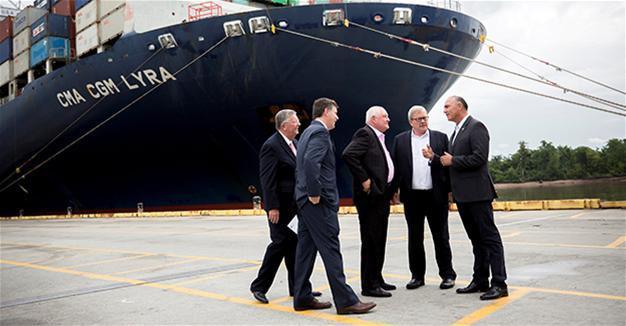NAFTA talks to begin Aug 16: US
WASHINGTON - Agence France-Presse

REUTERS photo
Negotiations on reworking North America’s landmark free trade pact will begin next month in Washington, U.S. officials announced on July 19.
The announcement comes after American officials this week laid out a bargaining position with a heavy emphasis on reducing bilateral trade deficits with Mexico and Canada while pressing Ottawa and Mexico City for other important trade concessions.
Analysts say the position is workable but certain U.S. demands -- such as toughening rules on sourcing duty-free goods and weakening dispute resolution procedures -- risk dragging out the process, which faces a narrow window created by the Mexican and American political calendars.
The first round of the talks will be held from August 16 to 20 and John Melle, the assistant U.S. Trade Representative for the Western Hemisphere, will lead the U.S. delegation to the talks, the Trade Representative’s office said in a statement.
Melle is a 30-year veteran of USTR, having held positions covering Mexico, Canada, the Caribbean and Central America.
That puts the start of the talks 90 days after the opening of a consultation period with Congress, allowing them to begin at the earliest possible opportunity allowed by U.S. law.
In a statement on July 19, the Mexican economic ministry said the Mexican government had completed consultations with industry representatives to develop its own negotiating objectives.
“The Mexican government reiterates its willingness to work together with its NAFTA partners to increase our regional competitiveness and continue to generate trade and investment opportunities in North America,” the secretariat said in a statement.
On the campaign trail, President Donald Trump attacked the 1994 North American Free Trade Agreement, calling it the “worst” trade pact ever signed by the United States.
But he has stopped short of exiting the agreement and his administration is now focused on comparatively minor tweaks, with substantial proposed changes drawn from the Trans-Pacific Partnership -- a 12-nation treaty negotiated by the former Obama administration which the White House scrapped earlier this year.
“These objectives could lead to a successful negotiation but one that will be difficult and where not all the objectives can be achieved,” Jeffrey Schott, a senior fellow at the Peterson Institute for International Economics, told AFP.
“This does open the possibility for improving NAFTA from its current form and I think it’s a basis for negotiations.”
